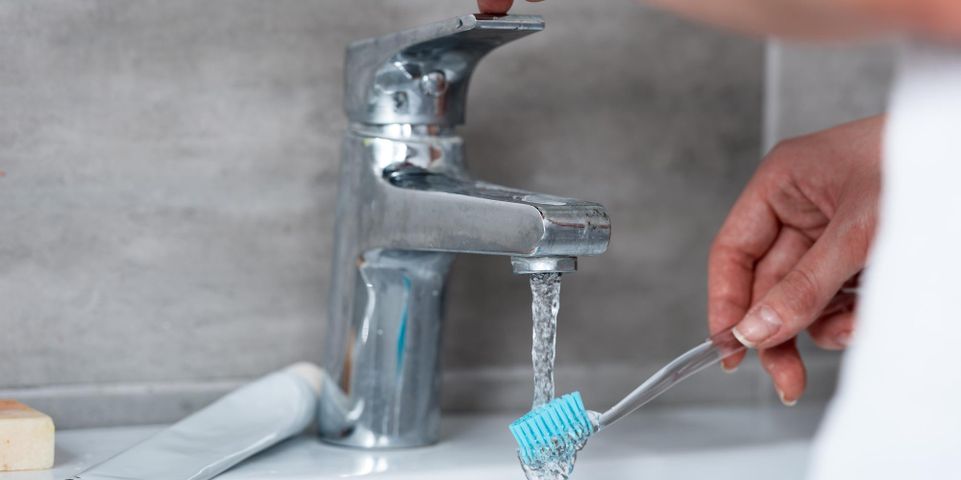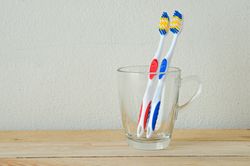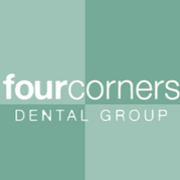
The mouth harbors bacteria, which is why dentists recommend replacing your toothbrush every 90 days. However, many people want to keep their brushes clean in the meantime. Here’s more information about the potential benefits of cleaning your brush and how to do it safely.
Why You Might Want to Clean Your Toothbrush
When you use a toothbrush to brush your teeth and tongue, the bristles pick up food debris from the mouth. While many of these will come off when you rinse the brush, a few could remain stuck at the bottom of the bristles. The brush can also pick up coliform bacteria simply from being stored in a bathroom.
While cleaning your brush isn’t necessary as long as you avoid sharing it and remember to replace it every three months, studies have shown that it may help remove accumulated bacteria.
How to Keep Your Toothbrush Fresh
 The Centers for Disease Control and Prevention (CDC) discourages patients from using their dishwashers or microwaves for this purpose, as doing so could damage the brushes. They also advise against soaking brushes in mouthwash to prevent bacteria from spreading further.
The Centers for Disease Control and Prevention (CDC) discourages patients from using their dishwashers or microwaves for this purpose, as doing so could damage the brushes. They also advise against soaking brushes in mouthwash to prevent bacteria from spreading further.
Instead, use boiling water to kill germs, viruses, and bacteria. Fill a pot with clean water and bring it to a boil. Drop your toothbrush in and keep it submerged for a few minutes before removing it from the heat. Let the pot cool completely before handling the brush with tongs. You can do this every week.
To prevent bacterial growth, avoid storing your brush in a closed container. Rinse it after every use, dry it, and place it upright in a cup. If you place more than one in a container, try not to let the bristles touch to avoid cross-contamination.
Four Corners Dental Group helps patients in Anchorage and Wasilla, AK, maintain optimal oral health. Their dentists provide advice on preventive care to help you keep a healthy smile. They also offer routine cleanings, teeth whitening, sealants, and fluoride applications to prevent decay. Call (907) 258-3384 today to schedule your next appointment with a dentist. For more information on preventive care, visit their website.
About the Business
Have a question? Ask the experts!
Send your question

